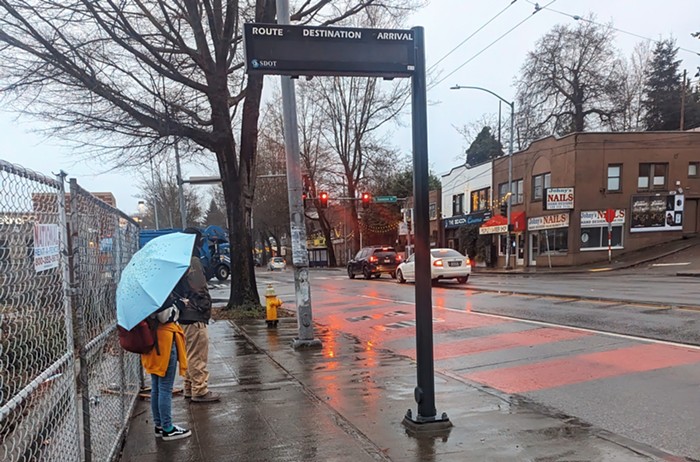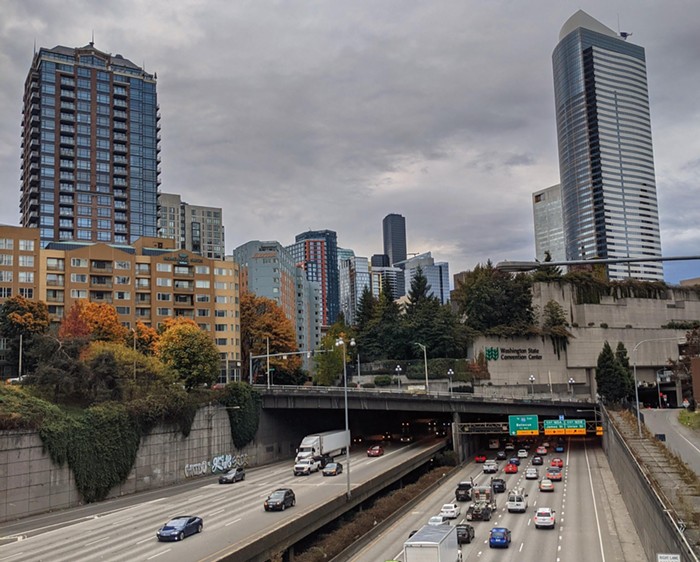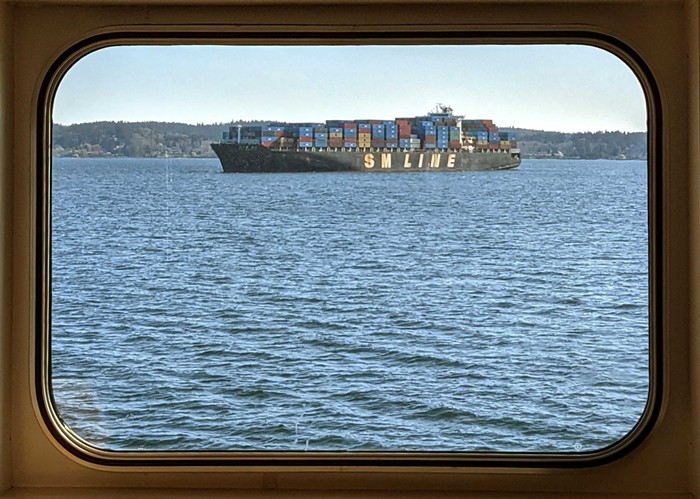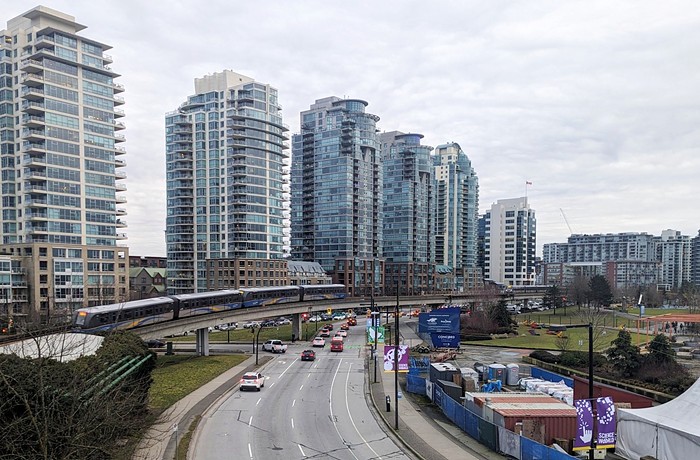She stood on the sidewalk along a street that ran into a deep-green park. I was on a slow-moving train heading to Seattle from Vancouver B.C.. The location: Burnaby. The time: 6:02 pm, the 11th day of the present month. The sun: Beginning its last three hours in a sky that's gathering clouds. Then she did something that utterly baffled me. She waved at me. My first thought out of bafflement: She must be having a nervous breakdown and the passing train lifted her spirits a little. I waved back at her. My hand said: "I hope you get better. Things are not always as bad as they seem."
But then a kilometer or so down the track, a man walking a trail between a Burnaby park and the railroad's gravel, waved at me. Was he, too, having a nervous breakdown? Then another person waved, and another, and another. At this point, I had to abandon the nervous condition assumption. These people were just waving at the train. Maybe this was a Canadian thing? Canadians are famously friendly. You get the idea.
We crossed the border at 6:50 pm, and 30 minutes later entered the north side of Bellingham. We passed Little Squalicum Beach—no waving. We passed Seaview Boatyard North Inc—still, no waving. And just as I was about to conclude it was a Canadian thing for sure, an explosion of waving occurred as the train rolled into the side of the city near Fairhaven Station. Most of this waving came from Boulevard Park and Taylor Dock Boardwalk. Had Canadian friendliness overflowed into Bellingham, which is, after all, a suburb of Vancouver, in the way Mount Vernon is a suburb of Seattle? Maybe this hand-waving business did not survive the Samish hills and lakes and the farms of Skagit Valley. At this point, I forced myself to drop the idea of Canadian surplus. And, as I looked out at the setting sun, faced the fact that people generally waved at trains. But why?
People do not wave at cars going up and down I-5. Indeed, there were plenty of cars cruising the boulevard adjacent to boardwalks and parks of south Bellingham, but no one waved at them and looked at them longingly. What makes the passenger train so special? We live in a country that has done its best to keep this most rational form of transportation in a primitive state. The future of trains really belongs to the 19th century, when they offered the fastest way to cross great distances. These days, American trains are so slow and rarely upgraded. For example, the train car I was in during my return home (which took forever), was a bit (to be honest) dingy and offered none of the modern conveniences you find on, say, an Alaska Airlines plane—working wifi, in particular. Amtrak makes no effort to look like it's heading into anything like the future. It is content (or, more properly, condemned by its society) to stay in the past.
So, if there is no significant contemporary cultural attachment to passenger trains, and certainly there is one with cars, which are celebrated on the regular on TV and web advertisements, why bother waving at them? Car ads show very happy people driving here and there and all over. Why shouldn't people wave at these ebullient drivers? They are certainly happy. You are happy. That makes a lot of sense. But no, you wave at us in underfunded and rarely advertised Amtrak cars. Really, what is going on here?
Rich Smith, The Stranger's editor offered this answer:
My thoughts are 1) everyone in the movies waves at trains and so we do; 2) the people in the trains look distant or alienated, like they’re in a spaceship, eternal visitors.
Megan Seling, The Stranger's arts editor, provided this answer:
I always assume it's happening because on a train people so often are looking out the window, at the scenery. Not their phone, not their...outside world, and eye contact between strangers passing through one another's lives without a wave or at least a grin or smile is fucking eerie.
My answer? The deep cultural history of waving at trains is still with us. In this respect, Rich Smith is on to something. Cinema, an art that emerged during the transition from trains to automobiles, never lost the power of the heartbreaking goodbye wave from the platform of a train station. We have seen it over and over. The chugging of the train slowly increases, the whistle blows, the blasts of steam everywhere, and those in the train window wave at those they are leaving, and those on the platform wave at those leaving them. Sometimes they even run after the train until the platform ends. The power of this moment is joyfully echoed to this day on the sidewalks and parks of Burnaby and Bellingham and other parts of North America.




















